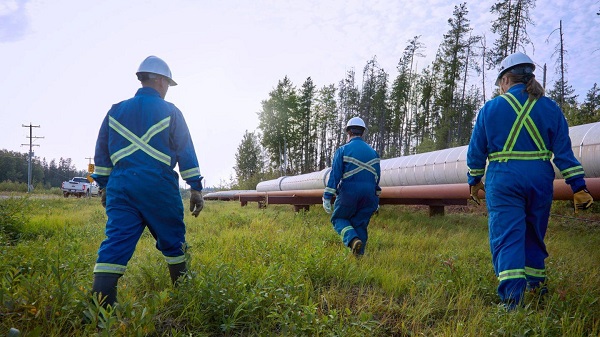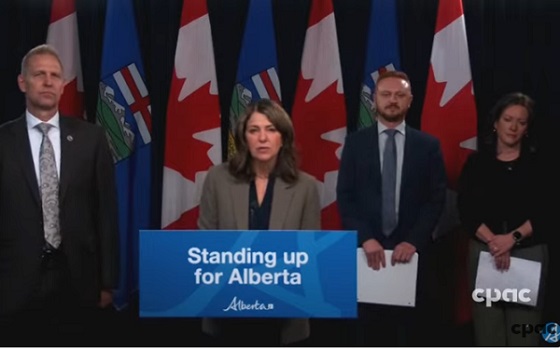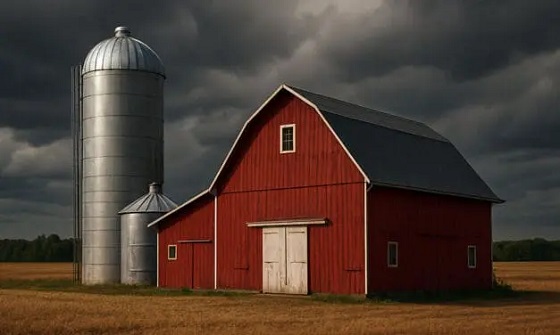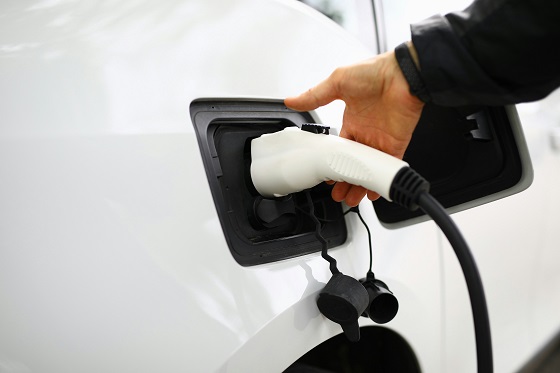Alberta
241 new COVID-19 cases. 4 more Albertans die. Alberta Update

The Manior du Lac Care Facility in McLennan has lost 6 residents to COVID-19
Update 37: COVID-19 pandemic in Alberta (April 19)
There are now 1,198 confirmed recovered cases of COVID-19 in the province.
A total of 241 new cases have been reported, bringing the total number of cases to 2,803.
Four Albertans have died since the last report, bringing the total number of reported deaths to 55.
Latest updates
- Cases have been identified in all zones across the province:
- 1,997 cases in the Calgary zone
- 429 cases in the Edmonton zone
- 142 cases in the South zone
- 137 cases in the North zone
- 76 cases in the Central zone
- 22 cases in zones yet to be confirmed
- Of these cases, there are currently 65 people in hospital, 16 of whom have been admitted to intensive care units (ICU).
- 488 cases are suspected of being community acquired.
- The total deaths are 38 in the Calgary zone, eight in the Edmonton zone, eight in the North zone, and one in the Central zone.
- To date, 307 cases have been confirmed at continuing care facilities, and 36 residents at these facilities have died.
- There have been 97,180 people tested for COVID-19 and a total of 101,323 tests performed by the lab. In the last 24 hours, 4,426 tests have been completed.
- One of the Albertans who recently died was a resident at Manoir du Lac in McLennan, which brings the total deaths at this facility to six.
- Alberta Health Services has assumed administration of Manoir du Lac. Learn more here.
Interactive map for commercial truck drivers
Truck drivers can now use an interactive map on 511Alberta to find open restaurants, restrooms and showers on Alberta highways.
The map shows restaurants, safety rest areas and vehicle Inspection stations that have available food, washrooms, showers and/or rest areas.
Fire bans
A fire ban is in place inside the Forest Protection Area of Alberta and Alberta provincial parks and protected areas until further notice.
With snow on the ground, the fire danger level is low. No off-highway vehicle restrictions are currently in effect in the Forest Protection Area. Off-highway vehicle restrictions will be phased in as hazards arise.
For more information on fire bans and OHV restrictions, call 1-866-FYI-FIRE or visit www.albertafirebans.ca.
Mental health supports
Confidential supports are available to help with mental health concerns. The Mental Health Help Line at 1-877-303-2642 and the Addiction Help Line at 1-866-332-2322 are available between 7 a.m. and 11 p.m., seven days a week.
Online resources provide advice on handling stressful situations and ways to talk with children.
Family violence prevention
- A 24-hour Family Violence Information Line is available at 310-1818 to get anonymous help in more than 170 languages.
- Alberta’s One Line for Sexual Violence is available at 1-866-403-8000, from 9 a.m. to 9 p.m.
- Information sheets and other resources on family violence prevention are available at alberta.ca/COVID19.
Quick facts
- The most important measure Albertans can take to prevent respiratory illnesses, including COVID-19, is to practise good hygiene.
- This includes cleaning your hands regularly for at least 20 seconds, avoiding touching your face, coughing or sneezing into your elbow or sleeve, and disposing of tissues appropriately.
- Those with symptoms of COVID-19, including cough, fever, runny nose, sore throat, or shortness of breath, should complete an online COVID-19 self-assessment. After completing the form, there is no need to call 811.
- The 310 call centre’s operating hours are from 8:15 a.m. to 6 p.m. on weekdays.
- For recommendations on protecting yourself and your community, visit alberta.ca/COVID19.
- All Albertans need to work together to overcome COVID-19. Albertans are asked to share acts of kindness they have experienced in their community during this difficult time by using the hashtag #AlbertaCares.
Alberta
‘Existing oil sands projects deliver some of the lowest-breakeven oil in North America’

From the Canadian Energy Centre
By Will Gibson
Alberta oil sands projects poised to grow on lower costs, strong reserves
As geopolitical uncertainty ripples through global energy markets, a new report says Alberta’s oil sands sector is positioned to grow thanks to its lower costs.
Enverus Intelligence Research’s annual Oil Sands Play Fundamentals forecasts producers will boost output by 400,000 barrels per day (bbls/d) by the end of this decade through expansions of current operations.
“Existing oil sands projects deliver some of the lowest-breakeven oil in North America at WTI prices lower than $50 U.S. dollars,” said Trevor Rix, a director with the Calgary-based research firm, a subsidiary of Enverus which is headquartered in Texas with operations in Europe and Asia.
Alberta’s oil sands currently produce about 3.4 million bbls/d. Individual companies have disclosed combined proven reserves of about 30 billion barrels, or more than 20 years of current production.
A recent sector-wide reserves analysis by McDaniel & Associates found the oil sands holds about 167 billion barrels of reserves, compared to about 20 billion barrels in Texas.
While trade tensions and sustained oil price declines may marginally slow oil sands growth in the short term, most projects have already had significant capital invested and can withstand some volatility.
“While it takes a large amount of out-of-pocket capital to start an oil sands operation, they are very cost effective after that initial investment,” said veteran S&P Global analyst Kevin Birn.
“Optimization,” where companies tweak existing operations for more efficient output, has dominated oil sands growth for the past eight years, he said. These efforts have also resulted in lower cost structures.
“That’s largely shielded the oil sands from some of the inflationary costs we’ve seen in other upstream production,” Birn said.
Added pipeline capacity through expansion of the Trans Mountain system and Enbridge’s Mainline have added an incentive to expand production, Rix said.
The increased production will also spur growth in regions of western Canada, including the Montney and Duvernay, which Enverus analysts previously highlighted as increasingly crucial to meet rising worldwide energy demand.
“Increased oil sands production will see demand increase for condensate, which is used as diluent to ship bitumen by pipeline, which has positive implications for growth in drilling in liquids-rich regions such as the Montney and Duvernay,” Rix said.
Alberta
It’s On! Alberta Challenging Liberals Unconstitutional and Destructive Net-Zero Legislation

“If Ottawa had it’s way Albertans would be left to freeze in the dark”
The ineffective federal net-zero electricity regulations will not reduce emissions or benefit Albertans but will increase costs and lead to supply shortages.
The risk of power outages during a hot summer or the depths of harsh winter cold snaps, are not unrealistic outcomes if these regulations are implemented. According to the Alberta Electric System Operator’s analysis, the regulations in question would make Alberta’s electricity system more than 100 times less reliable than the province’s supply adequacy standard. Albertans expect their electricity to remain affordable and reliable, but implementation of these regulations could increase costs by a staggering 35 per cent.
Canada’s constitution is clear. Provinces have exclusive jurisdiction over the development, conservation and management of sites and facilities in the province for the generation and production of electrical energy. That is why Alberta’s government is referring the constitutionality of the federal government’s recent net-zero electricity regulations to the Court of Appeal of Alberta.
“The federal government refused to work collaboratively or listen to Canadians while developing these regulations. The results are ineffective, unachievable and irresponsible, and place Albertans’ livelihoods – and more importantly, lives – at significant risk. Our government will not accept unconstitutional net-zero regulations that leave Albertans vulnerable to blackouts in the middle of summer and winter when they need electricity the most.”
“The introduction of the Clean Electricity Regulations in Alberta by the federal government is another example of dangerous federal overreach. These regulations will create unpredictable power outages in the months when Albertans need reliable energy the most. They will also cause power prices to soar in Alberta, which will hit our vulnerable the hardest.”
Finalized in December 2024, the federal electricity regulations impose strict carbon limits on fossil fuel power, in an attempt to force a net-zero grid, an unachievable target given current technology and infrastructure. The reliance on unproven technologies makes it almost impossible to operate natural gas plants without costly upgrades, threatening investment, grid reliability, and Alberta’s energy security.
“Ottawa’s electricity regulations will leave Albertans in the dark. They aren’t about reducing emissions – they are unconstitutional, ideological activist policies based on standards that can’t be met and technology that doesn’t exist. It will drive away investment and punish businesses, provinces and families for using natural gas for reliable, dispatchable power. We will not put families at risk from safety and affordability impacts – rationing power during the coldest days of the year – and we will continue to stand up for Albertans.”
“Albertans depend on electricity to provide for their families, power their businesses and pursue their dreams. The federal government’s Clean Electricity Regulations threaten both the affordability and reliability of our power grid, and we will not stand by as these regulations put the well-being of Albertans at risk.”
Related information
- Conference Board of Canada socio-economic Impacts of Canada’s 2030 Emissions Reduction Plan – (April 2025)
- Alberta Electric System Operator’s position on Canadian Energy Regulations
-

 Agriculture2 days ago
Agriculture2 days agoLiberal win puts Canada’s farmers and food supply at risk
-

 Alberta2 days ago
Alberta2 days agoAlberta’s future in Canada depends on Carney’s greatest fear: Trump or Climate Change
-

 Alberta2 days ago
Alberta2 days agoIt’s On! Alberta Challenging Liberals Unconstitutional and Destructive Net-Zero Legislation
-

 International2 days ago
International2 days agoNigeria, 3 other African countries are deadliest for Christians: report
-

 Business1 day ago
Business1 day agoCanada urgently needs a watchdog for government waste
-

 Business1 day ago
Business1 day agoTrump says he expects ‘great relationship’ with Carney, who ‘hated’ him less than Poilievre
-

 2025 Federal Election1 day ago
2025 Federal Election1 day agoThe Liberals torched their own agenda just to cling to power
-

 2025 Federal Election23 hours ago
2025 Federal Election23 hours agoThe Last Of Us: Canada’s Chaos Election





